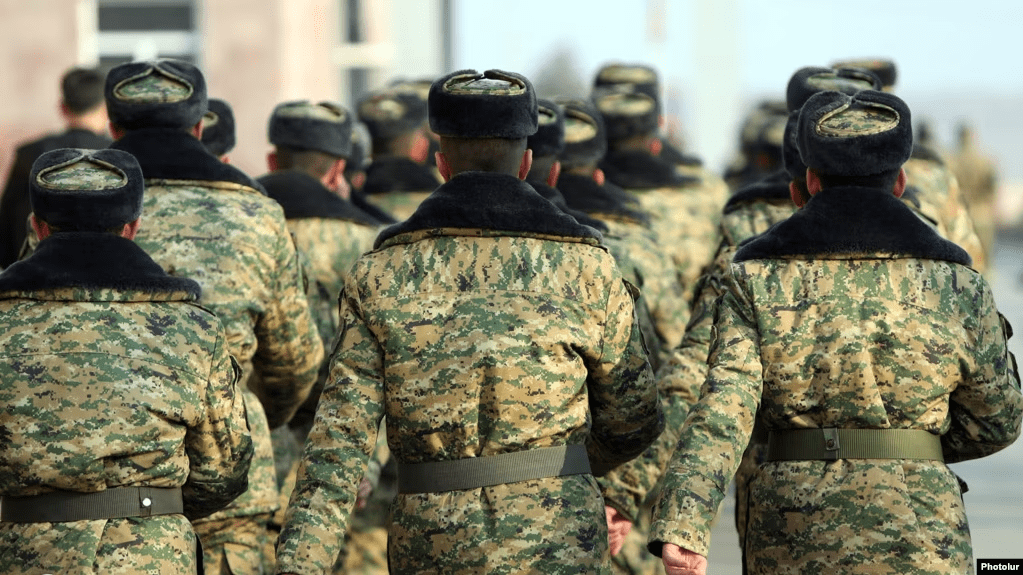Sargsian acknowledged the problem as he presented the Armenian parliament with another Defense Ministry bill that calls for stricter punishment for army reservists evading call-ups. The Armenian military regularly drafts them for month-long combat duty on the long border with Azerbaijan.
“It is not desirable to say from this podium that the number of troops is not enough and that is why people called up for training camps are used for combat duty,” Sargsian told lawmakers.
The official did not explain why the Defense Ministry wants to shorten compulsory military service for male citizens from 24 to 18 months in these circumstances. A relevant bill was posted on a government website early this month. An explanatory note attached to it says that the resulting drop in the number of conscripts serving in the armed forces would be offset by an increased number of contract soldiers recruited in recent years.
Opposition lawmakers have dismissed this assertion, pointing to the military’s continuing reliance on reservist call-ups. One of them, Tigran Abrahamian, again said on Tuesday that the proposed shortening of military service is a ploy by Prime Minister Nikol Pashinian designed to win more votes for his Civil Contract party in next year’s parliamentary elections. He insisted that it is also yet another concession to Azerbaijan.
“They are also trying to placate Azerbaijan which has been constantly talking about Armenia’s demilitarization in recent years,” Abrahamian told reporters.
Pashinian stoked such claims, denied by his political allies, after his government announced last week plans to cut its defense expenditures by over 15 percent, to 563 billion drams ($1.47 billion), next year. That contrasts with Azerbaijan’s plans to continue boosting spending on defense and national security which is projected to total $5 billion in 2025.
Armenia’s defense spending has risen steadily and significantly since the 2020 war in Nagorno-Karabakh. Pashinian first signaled his intention to reverse this trend about two weeks after an Armenian-Azerbaijani peace treaty was initialed during his talks with Azerbaijani President Ilham Aliyev hosted by U.S. President Donald Trump in Washington on August 8. Pashinian has since repeatedly claimed that that put an end to the Armenian-Azerbaijani conflict.
His domestic critics argue that Aliyev did not drop his preconditions for signing the treaty. They also say that even if the peace deal is signed it will not preclude further Azerbaijani military attacks on Armenia.






